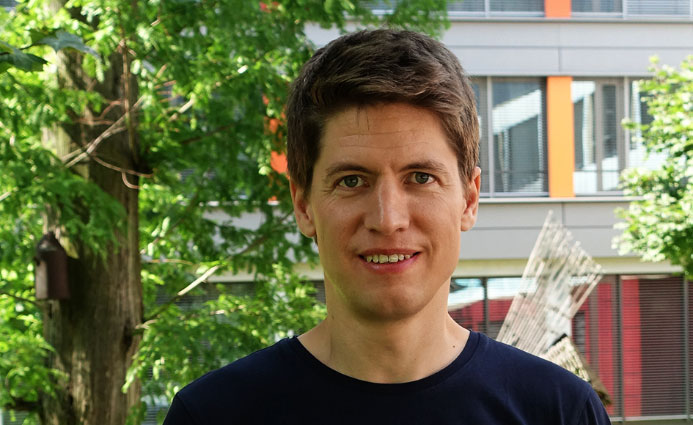From 18 June to 14 July 2017, Jan Becker from Germany’s national meteorological service (DWD) visited ECMWF as part of a scientific exchange focused on the calibration of forecasts. Here he explains what the visit achieved.

At DWD we need a large amount of historical forecast data stored in the Meteorological Archival and Retrieval System (MARS) at ECMWF in order to calibrate ECMWF ensemble forecasts (ENS) by means of Model Output Statistics (MOS). MARS experts at ECMWF gave valuable advice on the optimisation of DWD’s management of MARS requests to retrieve this data. As a result, the data transfer to DWD has been accelerated significantly. An operational version of MOS-calibrated ECMWF ensemble forecasts (00 UTC run) will soon be available at DWD and the production of a corresponding version for the 12 UTC run is envisaged.
The visit also provided an opportunity to examine the MARS hardware. This enabled me to see first-hand how the conceptual redesign of the request management leads to significantly faster access to the data.
Since ECMWF’s Integrated Forecasting System (IFS) is enhanced continuously, archived historical ensemble forecasts are based on different IFS cycles. However, changes in the models used to produce the historical ensemble forecast dataset typically cause a deterioration of forecast quality in the resulting MOS forecasts. This loss in forecast quality could probably be prevented or at least attenuated if suitable re-forecasts based on recent IFS cycles (ideally the current operational one) were used for MOS development instead of the historical forecasts mentioned above. I investigated locally with ECMWF experts how ensemble re-forecast data available at ECMWF could be used to set up an operational MOS system at DWD for ECMWF ensemble forecasts. A gap analysis raised a number of issues:
- the need for a scheduling concept to harmonise the temporal calculation scheme of (re-)forecasts at ECMWF with the schedule for the development and operational use of corresponding MOS equations at DWD
- further requirements concerning ECMWF ensemble re-forecasts, in particular the provision of 3-hourly re-forecast data
- further open questions, such as how the number of ensemble members (used for MOS-development in the first instance) affects the quality of resulting ENS-MOS forecasts, and whether replacing the data from 50 ensemble members with data from 10 ensemble members in MOS development is reasonable from a statistical point of view.
My current work focuses on the conceptual development and technical implementation of an optimised statistical combination of probabilistic forecasts emerging from individual MOS-calibrated NWP forecasts. The MOS-calibrated ECMWF ensemble forecasts will be used as important input for this optimised statistical combination of forecasts. In a talk at ECMWF, I was able to report on progress made in this DWD project. Overall the visit was very successful and took place in an exciting and stimulating environment conducive to new ideas.

